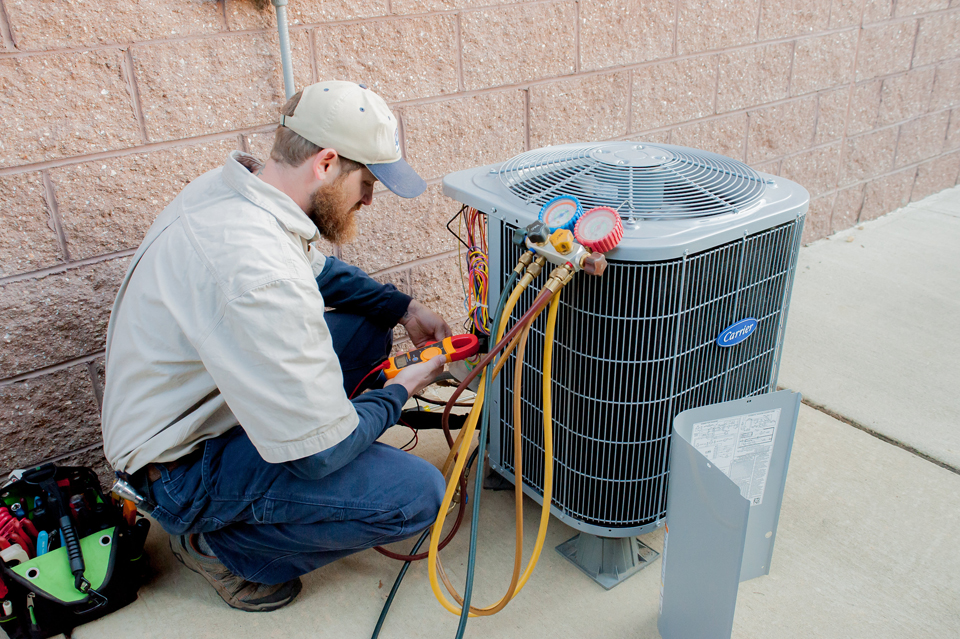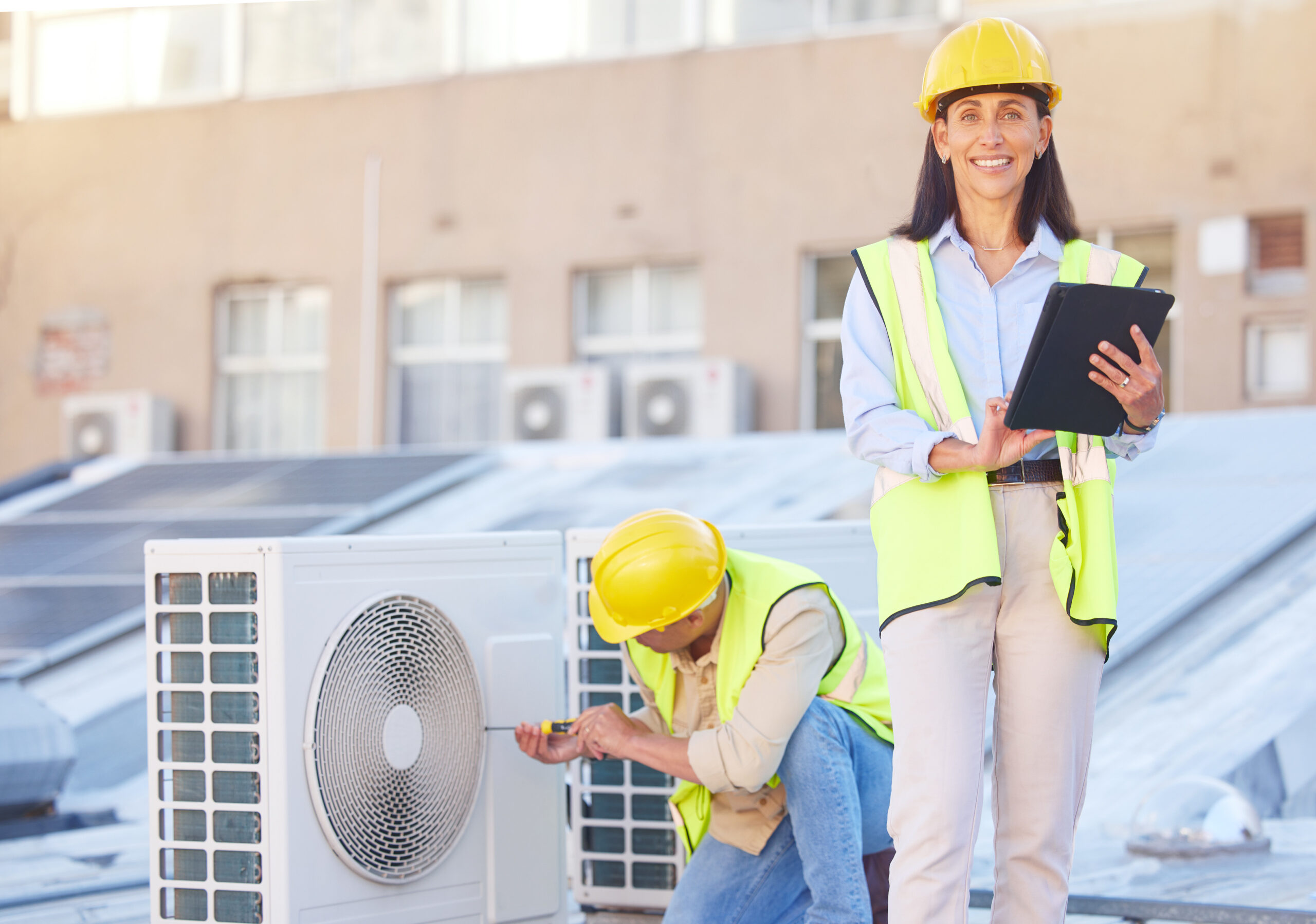Discover what’s new this month on HVACJobsOnly
Opening Possible: The Role of HVAC Workers in a Sustainable Job Market
The heating and cooling market is undertaking considerable makeovers as sustainability comes to be a top priority. A/c workers are at the center of this adjustment, furnished with the skills to apply environmentally friendly technologies and efficient systems. Their know-how not just addresses current needs yet additionally positions them as vital gamers in the future of energy conservation. As the landscape advances, comprehending their role will disclose just how they contribute to a greener economic situation and adjust to new challenges.
The Growing Relevance of Sustainability in HVAC
As the worldwide concentrate on environmental issues heightens, the a/c sector is progressively focusing on sustainability. This change mirrors a wider commitment to lowering carbon impacts and preserving energy. A/c systems, generally recognized for their power intake, are now being revamped to maximize performance and decrease ecological effect. Sector stakeholders are integrating sustainable techniques, such as maximizing and utilizing eco-friendly refrigerants system designs for lower energy usage.
Additionally, regulative structures are progressing to encourage greener innovations, compelling a/c experts to adapt to these changes. Training programs are being created to furnish workers with the needed abilities to execute sustainable remedies. This expanding emphasis on sustainability not only interest eco conscious consumers but likewise placements cooling and heating workers as vital players in the evolution toward a greener future. As an outcome, the demand for experienced experts experienced in lasting practices in cooling and heating is anticipated to increase, forming a much more durable task market.
Ingenious Technologies Changing the Heating And Cooling Market
Cutting-edge modern technologies are reshaping the heating and cooling industry, driving effectiveness and boosting customer comfort while dealing with sustainability challenges. The integration of smart thermostats and IoT tools permits real-time surveillance and control of cooling and heating systems, allowing users to optimize their energy usage. Furthermore, improvements in variable cooling agent flow (VRF) systems offer flexible and efficient home heating and cooling down options customized to details building requirements.
The usage of sophisticated filtering technologies boosts interior air quality, attending to wellness worries while advertising power efficiency. Automation and predictive maintenance powered by fabricated knowledge and machine learning boost functional performance, reducing downtime and lengthening tools lifespan.
Furthermore, the increase of renewable resource sources, such as solar-powered a/c systems, straightens with global sustainability objectives. Jointly, these ingenious technologies are not only transforming functional techniques however also redefining the duty and skillset of a/c specialists in a swiftly developing market.
Power Effectiveness: A Trick Focus for Heating And Cooling Professionals
Power performance has become a primary concern for heating and cooling specialists due to current advancements and energy-saving practices. These advancements not just improve system performance yet also markedly reduce the carbon footprint connected with cooling and heating. HVAC Jobs Only. As the sector advances, the dedication to energy efficiency will play a necessary function fit sustainable cooling and heating services
Advancements in HVAC Technology
While the demand for reliable environment control remains to rise, cooling and heating specialists are significantly turning their attention to technologies that focus on power efficiency. Advances in modern technology are reshaping the market, with smart thermostats and variable cooling agent circulation systems gaining traction. These developments improve temperature level policy while minimizing power intake. Furthermore, the integration of Web of Things (IoT) devices enables real-time tracking and predictive maintenance, further enhancing system efficiency. Environmentally friendly refrigerants are also being developed to lessen environmental effect. As energy effectiveness becomes a crucial focus, a/c employees are embracing these technical developments, ensuring that climate control remedies are cost-effective and lasting. Such developments not only benefit the atmosphere yet also enhance the general performance of cooling and heating systems.
Energy-Saving Practices Implemented
As the heating and cooling sector advances, experts are increasingly taking on energy-saving techniques that substantially improve effectiveness. Service technicians are now concentrating on advanced analysis devices to analyze system performance accurately. Routine maintenance routines have actually become basic, ensuring perfect procedure and protecting against power waste. Experts are also recommending high-efficiency tools, which makes use of innovative innovations to lower energy intake substantially. In enhancement, the assimilation of wise thermostats enables tailored environment control, adjusting to customer preferences while reducing excess power usage. Insulation enhancements and duct securing are additionally stressed, taking full advantage of the performance of heating and cooling systems. Jointly, these techniques not just improve operational effectiveness but additionally add to long-term price savings for customers, strengthening the necessary function of a/c experts in cultivating lasting power options.
Effect On Carbon Impact
The application of energy-saving practices in the a/c market substantially influences the carbon footprint connected with heating and cooling systems. By prioritizing power effectiveness, cooling and heating professionals contribute substantially to minimizing greenhouse gas exhausts. High-efficiency tools, such as energy-efficient central heating boilers and a/c, minimizes power usage while maintaining perfect indoor environments. Additionally, routine upkeep and system upgrades ensure peak operational performance, further decreasing energy usage (HVAC Jobs Only). Advanced technologies, including smart thermostats and variable speed drives, permit for exact control over power consumption, causing considerable decreases in carbon discharges. Collectively, these techniques not only boost sustainability yet additionally setting a/c employees as crucial gamers in the change toward a greener economy, ultimately fostering an extra sustainable future for the sector and the environment
The Role of Heating And Cooling Workers in Decreasing Carbon Footprint
HVAC workers play an essential role in reducing the carbon footprint via energy effectiveness improvements and the integration of eco-friendly energy sources. By optimizing air, heating, and air flow conditioning systems, they contribute to reduce energy consumption and greenhouse gas discharges. Their competence not just boosts structure efficiency yet also supports wider sustainability objectives.
Energy Effectiveness Improvements
While several sectors are working to improve sustainability, HVAC employees play an essential role in implementing energy effectiveness enhancements that greatly decrease carbon footprints. These specialists are important in enhancing systems to reduce energy usage and improve performance. With routine upkeep, they assure that heating and cooling systems run at peak effectiveness, minimizing unneeded energy use. In addition, they are experienced in recognizing outdated devices and recommending energy-efficient choices, such as high-efficiency central heating boilers and smart thermostats. Their competence also extends to educating customers about appropriate system usage and seasonal adjustments, even more promoting lasting practices. By employing sophisticated innovations and finest practices, a/c employees contribute significantly to decreasing greenhouse gas exhausts, making them crucial players in the shift towards a greener future.
Renewable Power Assimilation
As renewable resource sources obtain traction in the pursuit for sustainability, heating and cooling workers are significantly tasked with incorporating these modern technologies right into existing systems. This integration entails the visit our website adoption of photovoltaic panels, geothermal systems, and energy-efficient heat pumps, which substantially minimize dependence on nonrenewable fuel sources. By retrofitting buildings with these renewable options, HVAC professionals play a critical duty in reducing carbon footprints and boosting power performance. Their knowledge is basic in making sure that these systems run harmoniously within conventional cooling and heating frameworks. Additionally, heating and cooling workers are crucial in informing customers concerning the advantages of renewable energy, promoting a shift toward much more sustainable techniques. HVACJobsOnly. Inevitably, their payments are crucial in advancing the sector's dedication to environmental stewardship and energy preservation
Training and Skills Growth for Lasting Practices
To flourish in a swiftly advancing work market, employees should prioritize training and skills development concentrated on lasting practices. The a/c market is increasingly incorporating eco-friendly innovations, demanding that professionals obtain expertises in energy-efficient systems and environmentally friendly cooling agents. Ongoing education programs are necessary for employees to stay updated on emerging fads, such as smart structure innovations and advanced climate control services.
Hands-on training and qualification in lasting techniques not only improve private competence however additionally add to overall sector requirements. Partnership with academic organizations and sector organizations can cultivate a labor force that is experienced in lasting a/c options. In addition, accepting electronic tools and software application for power management can additionally empower workers to execute reliable systems. As the need for sustainable methods expands, a/c experts outfitted with specialized training will be much better positioned to satisfy consumer expectations and governing demands, ultimately strengthening their worth in the job market.
Job Opportunities in the Evolving Heating And Cooling Landscape
The evolving heating and cooling landscape offers a riches of job opportunities for specialists geared up with innovative skills and lasting methods. As the demand for energy-efficient systems climbs, there is a boosting need for specialists who are educated in green technologies and environmentally pleasant options. Settings in design, setup, and upkeep of innovative a/c systems are coming to be more widespread, as business seek to improve effectiveness and lower carbon impacts.

The Future of A/c: Fads and Predictions for Sustainability
While the a/c industry continues to advance, patterns indicate a solid change towards sustainability as a basic facet of future growths. Developments in you could look here energy-efficient systems, such as variable refrigerant flow and smart thermostats, are ending up being progressively prevalent. These innovations not only minimize energy consumption but additionally improve user convenience by enhancing climate control.
The integration of eco-friendly energy resources, such as geothermal and solar systems, is also obtaining traction. This shift lines up with global initiatives to reduce carbon impacts and combat environment modification. In addition, innovations in eco-friendly cooling agents aim to lessen environmental effect while preserving system efficiency.
As regulations tighten up around power performance and discharges, a/c workers will require to adapt to new standards and modern technologies. Continual education and training will be essential for specialists to flourish in this evolving landscape, guaranteeing they continue to be important to the sustainability movement within the sector.
Often Asked Questions
What Certifications Are Available for Cooling And Heating Professionals Concentrated On Sustainability?
HVAC specialists can seek qualifications such as LEED Environment-friendly Affiliate, EPA Area 608 Qualification, and NABCEP Solar PV Installer. These credentials enhance their know-how in lasting practices, power performance, and eco-friendly technologies within the industry.
Just How Can A/c Employees Advocate for Greener Practices Within Their Firms?
HVAC workers can promote for greener practices by offering research on sustainable innovations, suggesting energy-efficient options, taking part in training sessions, and teaming up with monitoring to create eco-friendly policies that benefit both the setting and the business.
What Are the Common Misconceptions Regarding Cooling And Heating Careers in Sustainability?
Common misconceptions about a/c jobs directory in sustainability include the belief that these roles are only technological, do not have growth opportunities, or do not greatly influence environmental initiatives, threatening their vital function in promoting energy performance and environmentally friendly practices.

Exactly How Does Climate Adjustment Affect HVAC Work Safety and Demand?
Environment change raises demand for energy-efficient HVAC systems, boosting work safety for cooling and heating professionals. As policies tighten up and recognition expands, proficient employees are important for implementing sustainable services, ensuring a durable future in the market.

What Are the Finest Resources for Postgraduate Work in Sustainable Cooling And Heating Practices?
The finest sources for proceeding education in sustainable a/c techniques include on the internet training courses from accredited establishments, industry webinars, trade organizations, and qualification programs concentrated on power performance, renewable innovations, and sustainable layout principles.
A/c systems, commonly known for their energy usage, are currently being redesigned to make the most of effectiveness and minimize ecological effect. HVAC employees play an important function in minimizing the carbon footprint through power efficiency improvements and the integration of eco-friendly energy sources. Via regular upkeep, they assure that Cooling and heating systems run at peak effectiveness, minimizing unnecessary energy use. As renewable power resources obtain traction in the quest for sustainability, HVAC employees are progressively tasked with incorporating these modern technologies right into existing systems. Climate change increases need for energy-efficient Heating and cooling systems, boosting task safety and security for Heating and cooling specialists.